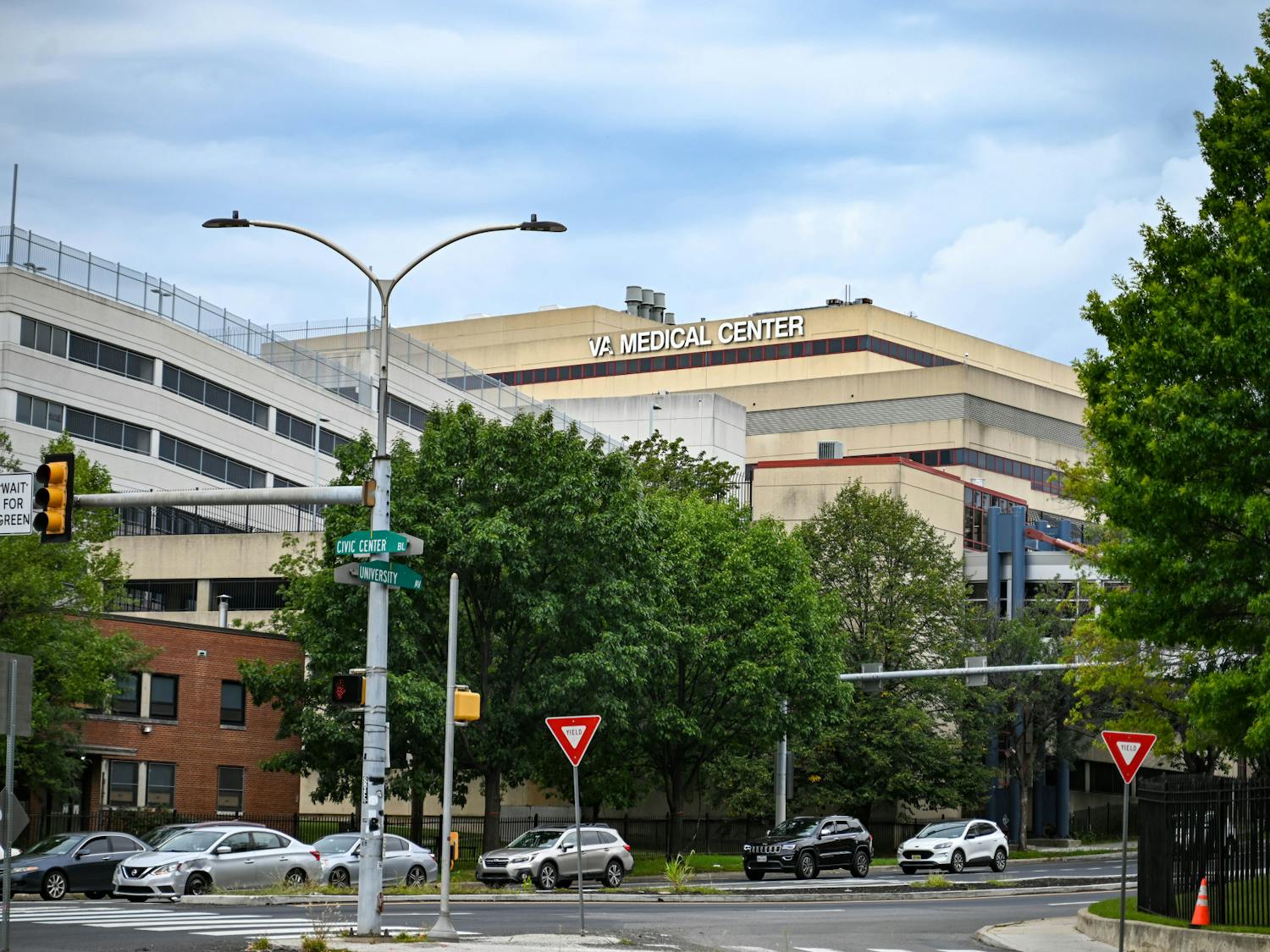President Donald Trump returned to the city of his alma mater to boast about a booming economy in Philadelphia before thousands of electrical contractors from across the nation.
Praising himself as an ally of the electrical industry, the 1968 Wharton graduate delivered a speech for the National Electrical Contractors Association's annual convention at the Pennsylvania Convention Center Tuesday afternoon. Trump covered an array of topics, talking at length about "the best economy in our history."
Trump spoke extensively about the recently announced framework for a trade deal between the United States, Canada, and Mexico to act as a new form of the North American Free Trade Agreement — the United States-Mexico-Canada Agreement, or USMCA.
“As you probably noticed, and read, and saw, there were little tough negotiations, but it all worked out,” Trump said. “We are straightening some of these horrible deals that stole our wealth, stole our jobs, stole so much from us. Actually, in many ways, stole our dignity as a country.”
Trump characterized USMCA as "the most advanced, modern, and balanced trade deal ever."
“The USMCA will protect American workers, substantially increase exports of American agriculture," Tump declared. "[It] will revitalize the American auto industry.”
For electrical contractors like Bob Alger, one of the leaders of an NECA chapter in British Columbia, the new agreement brought a great deal of relief. Alger said that he was previously concerned how the Trump administration's displeasure with Obama-era trade policies like NAFTA could affect trade with the U.S.
"In Canada, it’s on the news every day,” Alger explained. “It’s a big deal in Canada and we’re pleased that it’s settled.”
RELATED:
Records show that all three Trump children who went to Penn have donated to the University
Was Trump really a top student at Wharton? His classmates say not so much

President and 1986 Wharton Graduate Donald Trump came to Philadelphia on Oct. 2, 2018.
During his speech, the New York Times published the details of a special investigation showing that Trump has received upwards of $400 million in today's money throughout his life from his father's real estate business. The article states that much of the income was earned through familial tax schemes in the 1990s. Trump did not mention the report in the address.
While the crowd reacted enthusiastically to many of Trump's declarations, the president's relationship with the electrical industry has been contentious ever since the White House imposed tariffs on imported solar cells, which are key to the electrical industry.
Shelly Hudson, an electrical contractor from Murray, Ky., noted that the tariffs have increased prices for such materials, driving up operating costs across the board.
At times, Trump roamed to other topics including trade with South Korea and China, military spending, and healthcare, though he continually returned to discussing the economy, citing the recently passed Republican tax cuts as a source of economic resurgence.
“Those tax cuts are one of the reasons the economy is doing so well. You are talking about a lot of money in the pockets of everybody in this room.”

Roughly 100 demonstrators flanked by police officers stood outside the convention center at the intersection of Broad and Cherry streets in protest of Trump's visit. Sporadically launching into chants, many of the protestors waved signs denouncing Trump's policies.
“I couldn’t stay home. I’m so upset on a daily basis by all the new atrocities coming out of this administration,” protester Carol Weisl said. "It’s not okay. And I wanted to let people know that it’s not okay.”
The last time Trump spoke in Pennsylvania was for a campaign rally in Wilkes-Barre where he endorsed U.S. Rep. Lou Barletta (R-Penn.), who is challenging incumbent U.S. Sen. Bob Casey (D-Penn.). The NECA endorsed Barletta, who was at the conference, in August.
“He can’t get into ball games. He can’t get into concerts. He can’t go to graduations. He can’t just walk down the street," Sonia Kling, a resident of the Philadelphia area, said. "He can’t go to these places that most presidents would go to because he’s hated."









